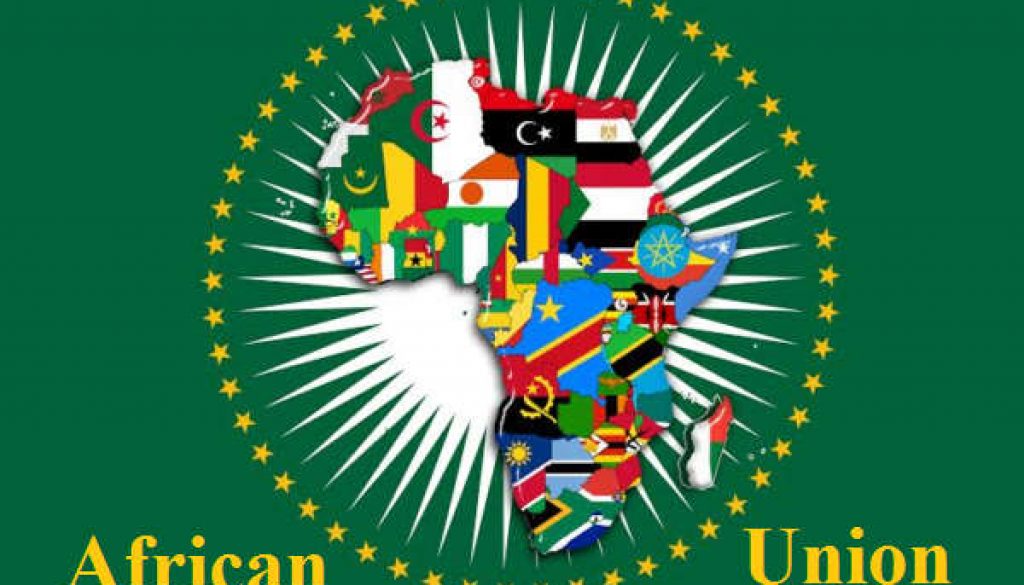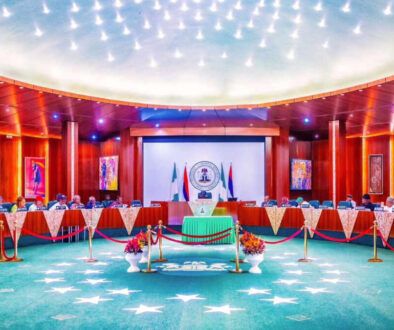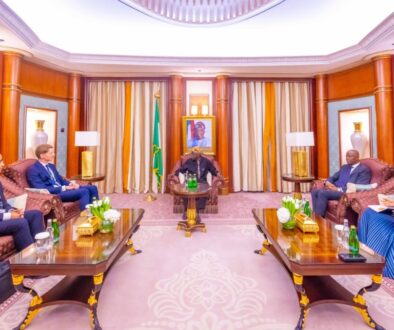Can Africa industrialise?
Africa is blessed with enormous mineral, human and material resources that when efficiently and effectively tapped and utilised, will lead to desired growth and development.
Despite its huge potential, the continent, over the years, has battled the bane of economic transformation and industrialisation.
Industrialisation is the process of transforming the economy of a nation or region from a focus on agriculture to a reliance on manufacturing on a wide scale.
Statistics show that many countries of the world have achieved economic transformation through industrialisation that has led to increased labour productivity, rising Gross Domestic Product (GDP) per capita, improved livelihoods, increased employment rate, high income and poverty reduction.
The industrialisation process, therefore, is at the forefront of Africa’s development, driving its economic future and capacity to create jobs at scale for a rapidly increasing young population.
Experts believe an industrialised Africa is possible with collaboration from relevant stakeholders and a strong political will.
The President of the Federal Republic of Ethiopia, Ms Sahle-Work Zewde, said that effective governance and political will were key to an industrialised Africa.
According to the Ethiopian president, an industrialised Africa is not a luxury but critical for economic and industrial development on the continent.
“Political will is at the heart of what we do, and policies must incorporate updated tools. Political frameworks should emphasise principles that promote improved productivity and competitiveness.
“There is the need to change Africa’s industrialisation narrative through inclusive and sustainable industrial development, ensuring none is left behind.
“Therefore, government institutions and structures must ensure that public policies, strategies, and national plans are gender-sensitive,” she said.
Mr Claver Gatete, Executive Secretary of the United Nations Economic Commission for Africa (UNECA), said that there was a need for sustainable industrialisation, inclusive development, and structural transformation through policies.
“We envision a prosperous Africa with sustainable development that maximises opportunities for income growth, local employment, poverty reduction, and social development.
“Industrialisation is the key to sustained growth and transformation, providing jobs, skills acquisition, innovation, and formal employment, especially for women and youth.
“Effective governance and development planning are crucial for industrialisation and structural transformation,” he said.
Gatete said that as the Sustainable Development Goals (SDGs) target year 2030 approaches, member states must review progress and identify the remaining tasks.
He said:” At the heart of our efforts to rescue and fulfil our commitment to Africa lies in our call for accelerated industrialisation for sustainable and inclusive development.
Also speaking, Prof. Kevin Urama, Chief Economist and Vice-President of the African Development Bank (AfDB) Group reiterated that African governments should have the political will to leverage the vast opportunities available on the continent.
Urama said the pace of sustainable industrialisation and structural transformation in Africa had been slower than required to lift Africans out of poverty.
While proposing actionable approaches, he called for an accelerated industrialisation and structural transformation in Africa.
“We need to demonstrate strong political will to promote industrialisation and maintain a stable and predictable macro-economic policy environment that facilitates ease of entry, exit, and safety of capital.
“We should develop and consistently implement a strategic industrial policy encouraging local production, consumption, and domestic/regional value chain development.
“We must develop and implement a national education and skill development strategy fully embedded in the National Industrial Policy and Development Plan.
“There is also a need to implement Special Economic Zones (SEZs) to promote spillovers through clustering and agglomeration as key industrial policy instruments,” he said.
According to the vice president, implementing fiscal incentives to encourage intra- and interregional trade and supply chain development will also advance industrialisation on the continent.
“To succeed, African countries must think differently, adopt, and implement transformative policy actions that accelerate endogenous manufacturing capacity and encourage consultation of locally manufactured products, “he said.
Meanwhile, the Director of the Macro Economic Policy Division, Economic Commission for Africa (ECA), Adams Elhiraika, said industrial development requires long-term commitment and institutional and government systems that promote industries.
According to him, African economies are small and, as such, need to integrate to attract investment within and outside the continent; Africa needs to integrate to create regional value chains that support industrialisation.
Elhiraika reiterated the importance of boosting integration on the continent by opening borders for the free movement of people, goods, and services,
According to Elhiraika, Africa can industrialise, integrate, and finance its development without depending on foreign support, as the continent cannot afford to continue receiving aid.
“We have the momentum and historical opportunities provided by the African Continental Free Trade Area (AfCFTA) and the growing integration of African economies.
“Now is the time for African policymakers and economists to move beyond orthodox, mainstream economics theories that used to tell us that we cannot integrate.
“Theories that say we cannot industrialise or finance our development and that we need aid for trade. We cannot continue to receive aid to produce primary commodities we export for processing elsewhere,” he said.
Elhiraika said it was time this stopped, with industrial strategies that enforced local contexts, promoted regional value chains, or promoted partnerships between public and private sectors.
He, therefore, stated that it was important for Africa’s small and medium enterprises to integrate with lead firms and create economic or manufacturing zones that work for Africa.
The Director said it was important to promote and support foreign direct investments to destroy backwards and forward linkages within Africa that produced goods consumed by Africans and then provide export opportunities for African countries.
Elhiraika said the just concluded Africa Economic Conference (AEC) in Addis-Ababa reiterated the various issues hindering industrial development in Africa.
He said it included opportunities for industrial development, challenges, and how they could be addressed.
A Professor of Economics at the University of Ibadan, Olawale Ogunkola, emphasised the need for infrastructure development on the continent, saying it will aid industrialisation.
Ogunkola, restating the importance, said it would help enhance and ease business in the region.
He then urged the need for policies and strategies that foster efficient industrialisation processes in Africa, such as Special Economic Zones (SEZs), which enhanced and eased doing business.
He said:” mass production is required to meet market demands, and this will not be profitable if trade costs are not reduced through infrastructure development.
“The case for infrastructure development is critical for regional value chains. If we do not address trade costs, making a profit will not be possible.”
The professor then urged governments to ensure the implementation of policies on the continent, as enacting those policies was not a solution unless they were implemented.
Similarly, Grace Nshemeirwe, the Chief Executive Officer (CEO) of the Uganda Private Sector Federation, emphasised the need for governments to address trade barriers and finance businesses.
She said: “harmonising trade policies across the region is vital to facilitate trade and enable African countries to compete effectively.
“Access to finance and capacity building cannot be overemphasised; we must also do more in product standardisation and packaging in Africa.”
The President of the Indian Chamber of Commerce, Pradeep Mehta, said trade policies must evolve to focus on consumer welfare, adding that consumer-centric approaches in shaping future trade policies in Africa were of utmost importance.
Meanwhile, Dr Joy Kategekwa, the Strategy Advisor at UNDP, emphasised the transformative potential of Regional Value Chains (RVCs) in Africa’s industrial revolution.
Kategekwa said RVCs enabled nations to leverage their comparative and competitive advantages, allowing them to participate in industries that might otherwise be beyond their capacities.
“Africa is industrialising; we must grow bigger and faster, which requires a multifaceted approach.
“Including consistent government policies, fostering Public-Private Partnerships (PPPs), and establishing SEZs to drive the development of regional value chains.
“Removing barriers to the free movement of people is equally crucial; we can’t trade and industrialise if we can’t move,” Kategekwa said.
Dr Hauwa Ibrahim of the Nassarawa State University, Nigeria, said Africa stood at the crossroads of opportunities and challenges.
Ibrahim said knowing there are no perfect policies, those with rooted outcomes stood the test of time. And there was a need for research and development to ensure a sustainable Africa.
“The demographic population is vital and should be considered because Africa has many young people; what they are learning now should matter to us.
“We need to recognise the role of technology and ensure it is applied at all levels.
“We cannot take out the role of education in defining technology because we do not want to industrialise and have to invest elsewhere, away from the continent, in certain labour forces.
“Therefore, while we invest in technology, we must also invest in the education of young people so they can help drive the technology,” she added.
For her part, Prof. Fiona Tregenna, University of Johannesburg and Chair of the Industrial Development National Research Foundation (NRF) of South Africa, said transformative industrialisation was crucial and would advance the continent.
While acknowledging some progress, she said several challenges that hindered efficient and effective industrialisation on the continent persisted.
She said: “Getting the Africa we want is not business as usual; otherwise, we will not get that transformative change to give us the Africa we want.
Mr Ibrahim Sall, former Minister of Planning in Senegal, said engagement with various relevant stakeholders would engender sustainable industrial development in Africa.
“We need a flexible, agile, high-impact industrialisation that is robust. We need to implement industrial policies; there is no policy that cannot be selective.
“Otherwise, we will be sprinkling without impacting or wasting capital. Therefore, there must be a selective national champion.
“How do we build with major stakeholders? What matters most is to look at selectivity and information and inform the states to understand that policies are not made on the ground.
“The engagement of states is key, and they must pay attention to the industrial sector,” Sall said.
According to him, selective criteria are critical. The vertical policy of African nations focuses on processing raw materials, and we also have horizontal and selective policies.
“This involves all actions: sustainability, infrastructure, human capital, and technology; with this, states do not need to be flexible but focus on sustainability,” he said.
Dr Thomas Munthali, Director-General, National Planning Commission, Malawi, urged countries on the continent to venture more into digitisation, engage the private sector to catalyse investments, experiment, and learn from successful nations.
Ms Fatou Haidara, Managing Director, Directorate of Global Partnerships and External Relations United Nations Industrial Development Organisation (UNIDO), said developing a strong industrial system required sustainable industrial growth.
While reiterating the private sector’s role, Haidara reaffirmed UNIDO’s commitment to supporting countries on the continent to achieve economic growth.
The Minister of Industry, Federal Republic of Ethiopia, Mr Melaku Alebel, said Africa urgently needed to rapidly diversify its economies and add value to everything it produced.
According to Alebel, the African Continental Free Trade Area (AfCFTA) presents a unique opportunity for integration and, thus, sustainable industrial development through collective action.
On his part, Mr Matthias Naab, Director, Regional Services Center, Regional Bureau for Africa, UNDP, said driving Africa’s industrial development required young ideas.
He, therefore, called for harnessing the power of youths, women and Small and Medium Enterprises on the continent.
According to the African Development Bank (AfDB)President, Dr Akinwumi Adesina, Africa’s wealth must no longer depend on exports of raw materials but on finished value-added products.
Adesina said,” the door to poverty is from the export of raw materials; the highway to wealth is industrialisation.
“To industrialise, Africa must solve its major challenges.





